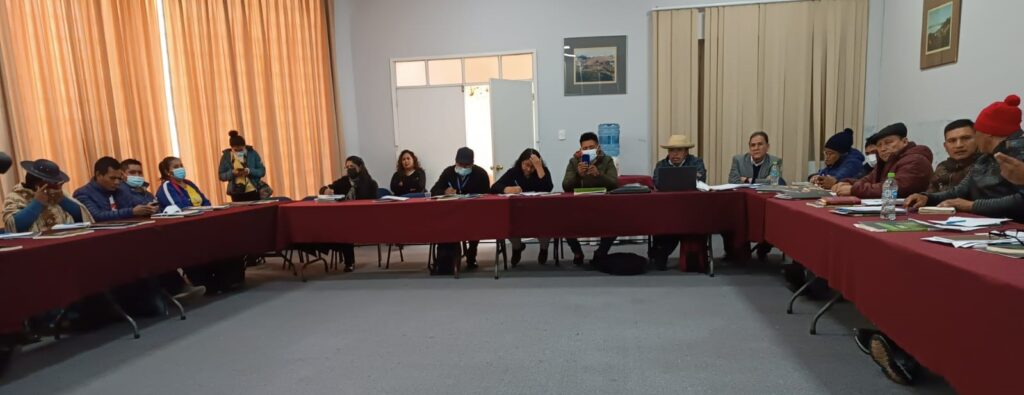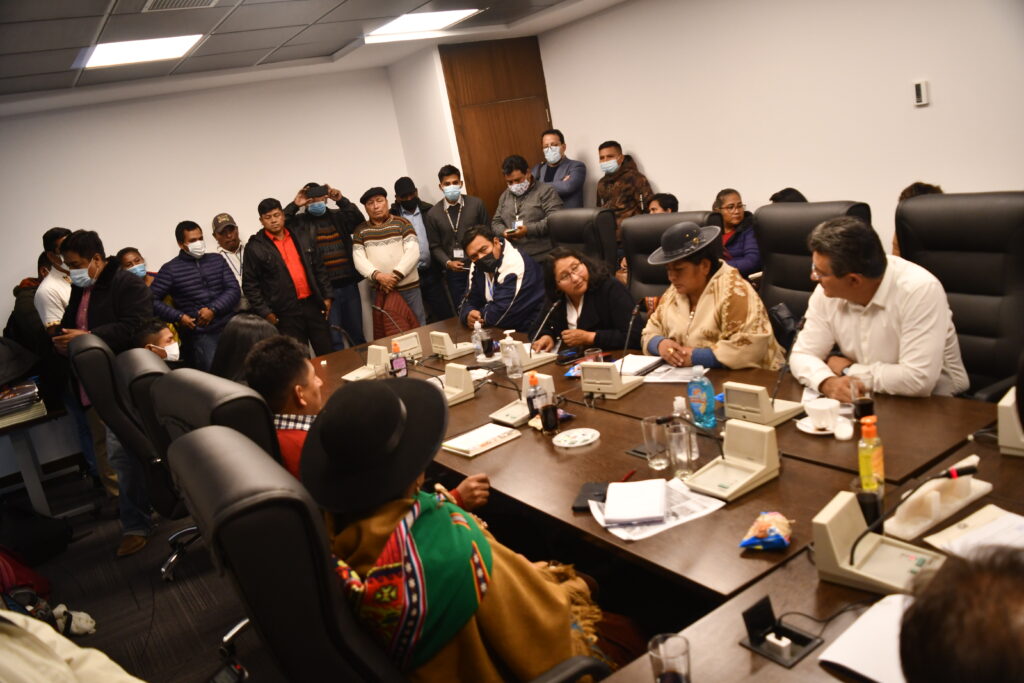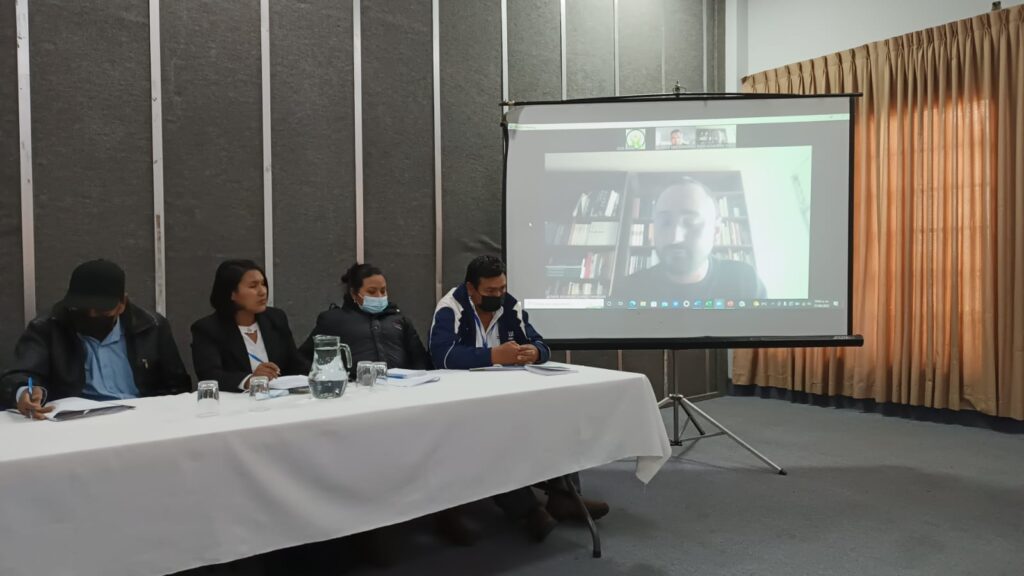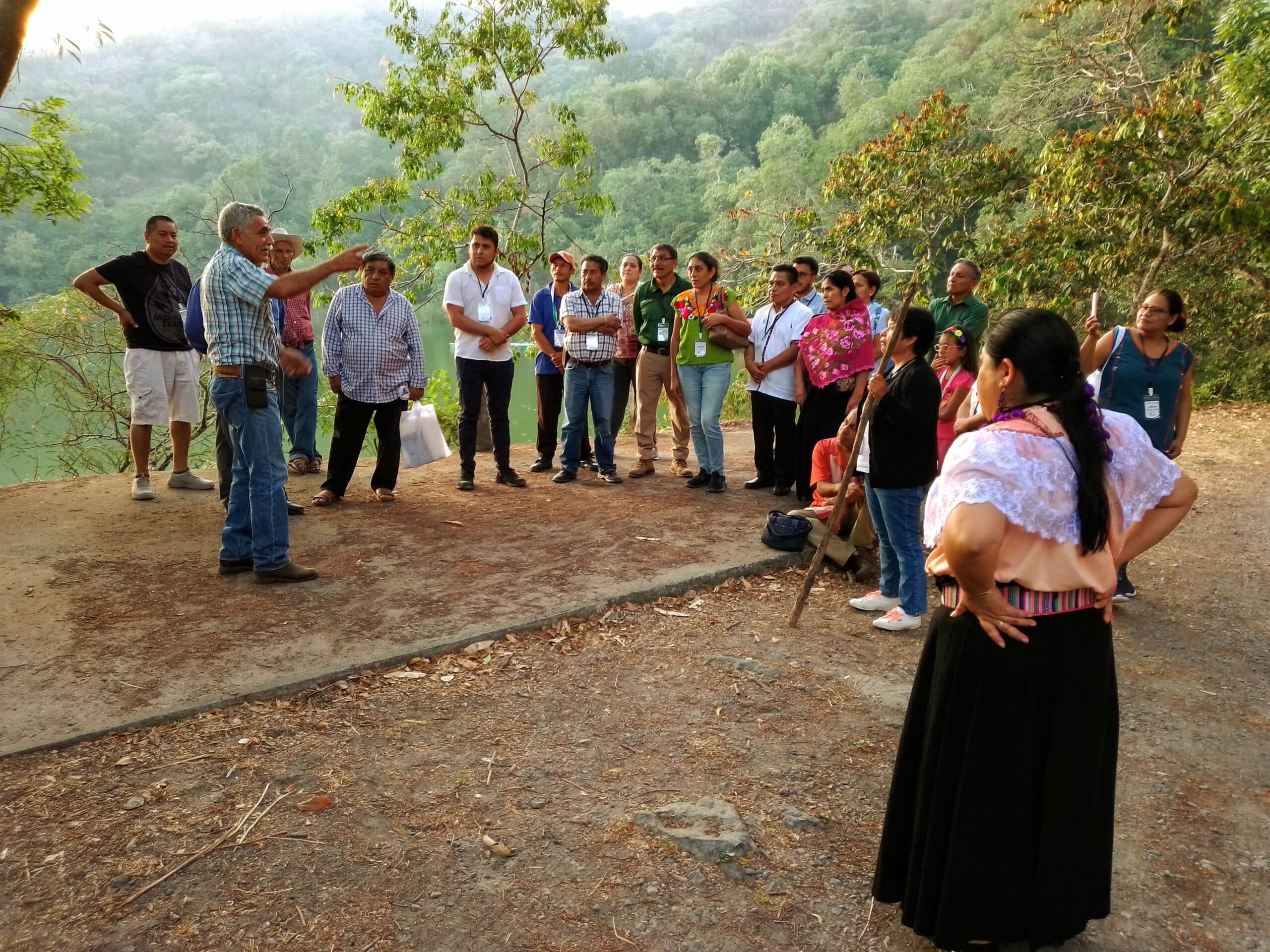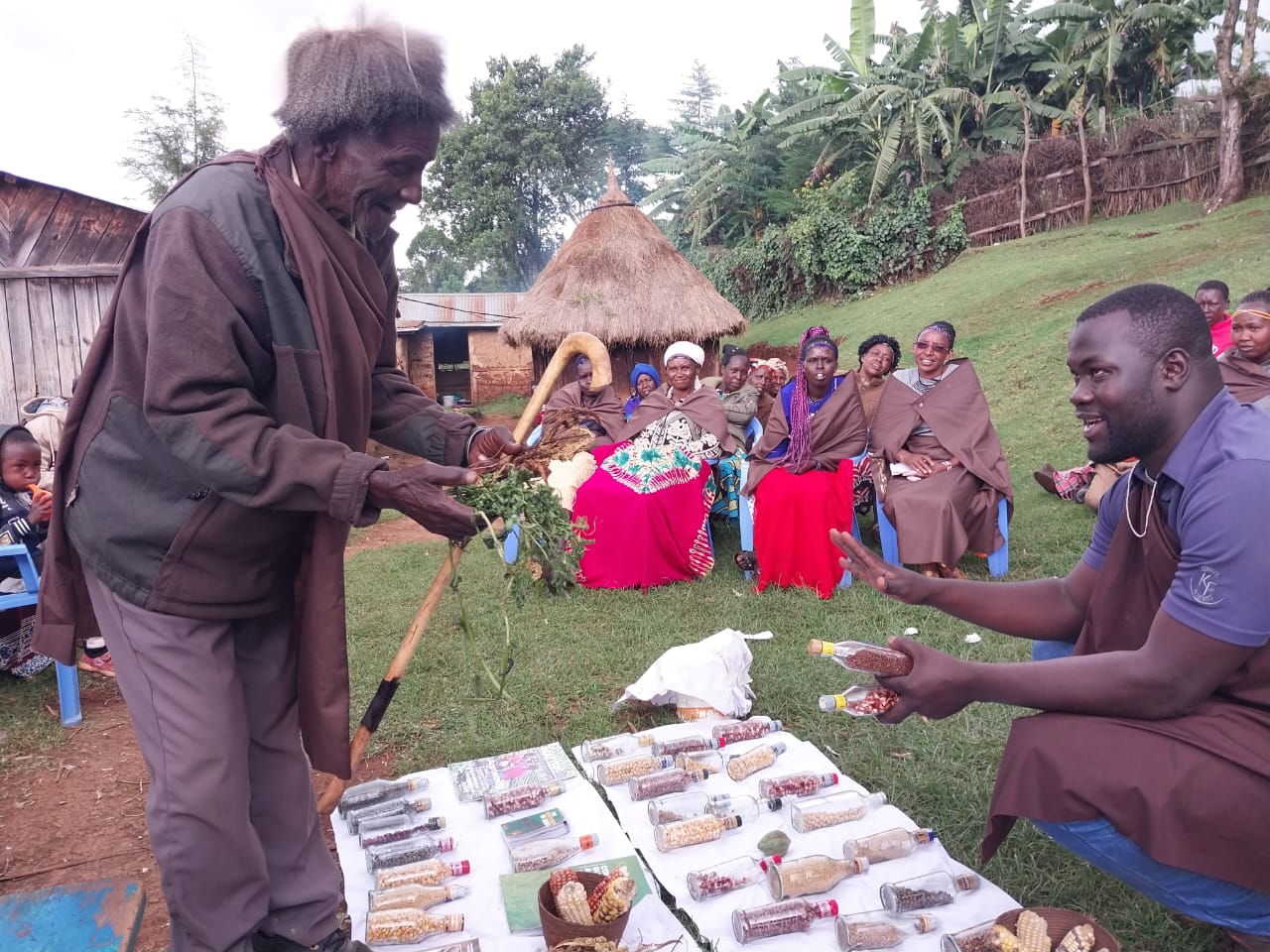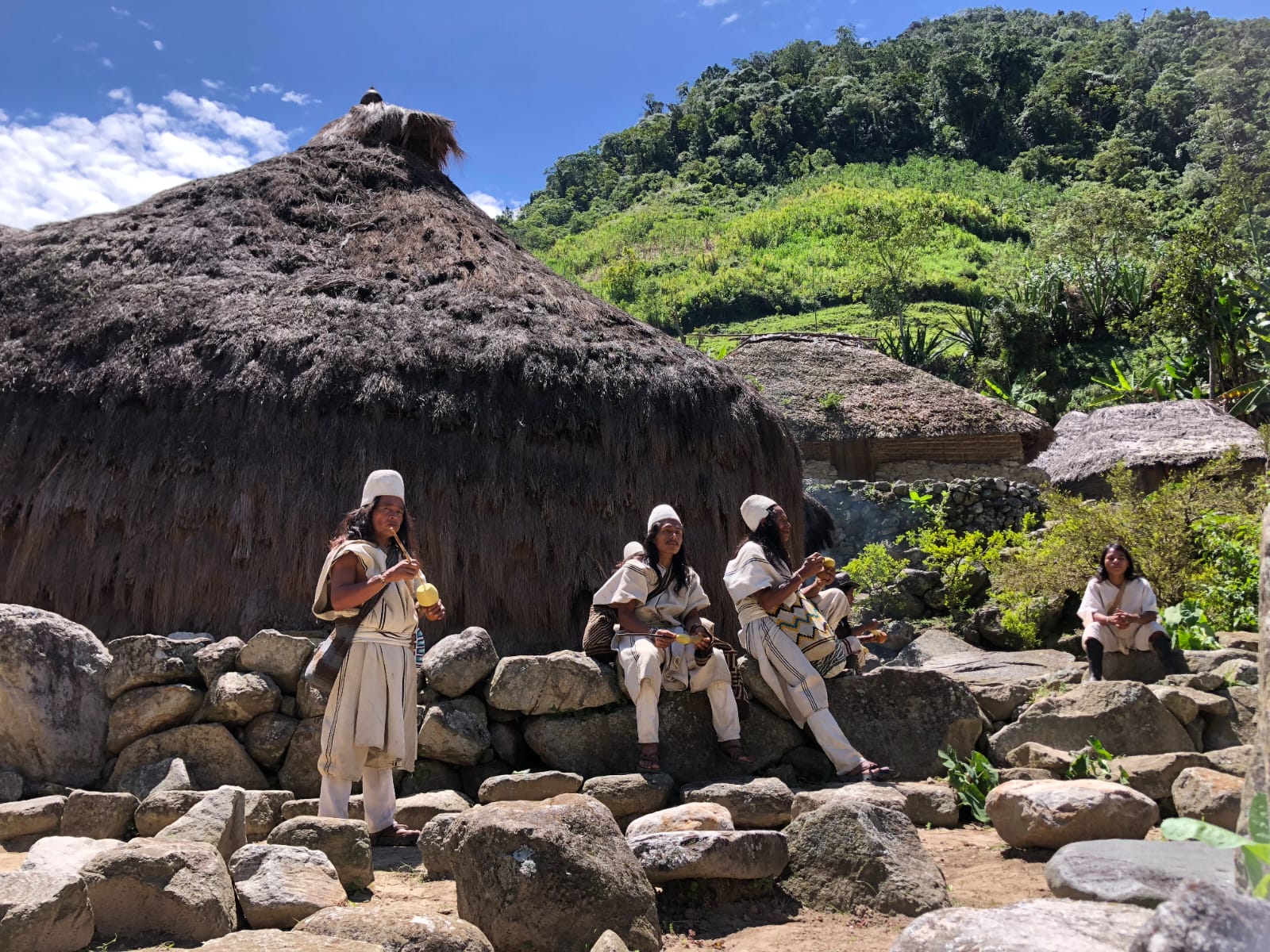On August 31st, in the town of Santa Cruz, the Plurinational Legislative Assembly of Bolivia held a session on the development of legislative measures to grant legal force to Indigenous Peoples’ autonomous FPIC protocols.
Free, Prior and Informed Consent (FPIC) has emerged as an international human rights norm that derives from Indigenous Peoples’ collective right to self-determination. Recognized in the United Nations Declaration on the Rights of Indigenous Peoples (UNDRIP), FPIC requires that Indigenous Peoples have the right to give or withhold their consent to projects and legislative measures that affect their lands, territories, livelihoods, and natural resources.
In 2009, the Constitution of Bolivia recognized Indigenous Peoples’ right to FPIC as well as the State’s obligation to fulfill this right. However, the State has since failed in its responsibility to implement FPIC. Throughout the past decade, the exploitation of natural resources in Bolivia has expanded tremendously, alongside growing destruction of biodiversity and violations of Indigenous Peoples’ rights. In Bolivia, as well as across the world, when Indigenous Peoples have been “consulted”, it has repeatedly happened in a way that forcefully legitimizes projects in their territories, instead of protecting their rights.
As a response to poor implementation of FPIC, many Indigenous Peoples in different parts of the world have started developing their own, autonomous initiatives for the advancement of their rights, based on their own worldviews and governance mechanisms. In their autonomous FPIC protocols, Indigenous Peoples themselves define how they are to be consulted and their FPIC sought.
In Bolivia, four Indigenous communities, San Antonio de Lomerío, Monteverde, the Multiethnic Indigenous Territory (TIM1), and Cavineño, have developed their own FPIC protocols, and six communities are currently in the process of doing so. Due to the initiative of these communities, the Assembly of Bolivia hosted a discussion about the need to officially recognize Indigenous Peoples’ FPIC protocols as tools with legal force.
In its session, the Assembly of Bolivia heard from representatives of Indigenous communities, civil society, academia, and the UN, on how Indigenous Peoples’ right to FPIC can be better secured. In the meeting, Land is Life’s FPIC Coordinator, David Suarez, shared experiences from working with several Indigenous communities in the development of their protocols, alongside Daniel Santi Gualinga from the Governing Council of the Kichwa Indigenous People of Sarayaku from Ecuador, who recently finalized their FPIC protocol. Daniel, on behalf of Sarayaku, presented his experience and opened the discussion on autonomous FPIC protocols as mechanisms for Indigenous communities to maintain their intrinsic relationship to their territories, to preserve life.
“FPIC protocols are tools for Indigenous communities to define their own juridical systems and development priorities. FPIC should not be interpreted solely as a means to say yes or no to a project. It should rather be viewed as a tool towards intercultural dialogue – a dialogue that allows Indigenous Peoples to genuinely participate in decision-making processes. At the same time, FPIC acts as a means for historical restoration, to repair Indigenous Peoples’ rights to have a say and make decisions that have historically been denied. Granting Indigenous Peoples’ FPIC protocols legal force is an act of decolonization.” – David Suarez, Land is Life’s FPIC Coordinator
Land is Life, which supports Indigenous Peoples in the development of community-led FPIC protocols, calls on the Assembly of Bolivia to take these discussions seriously and start the process of developing effective measures to grant legal force to Indigenous Peoples’ FPIC protocols.

